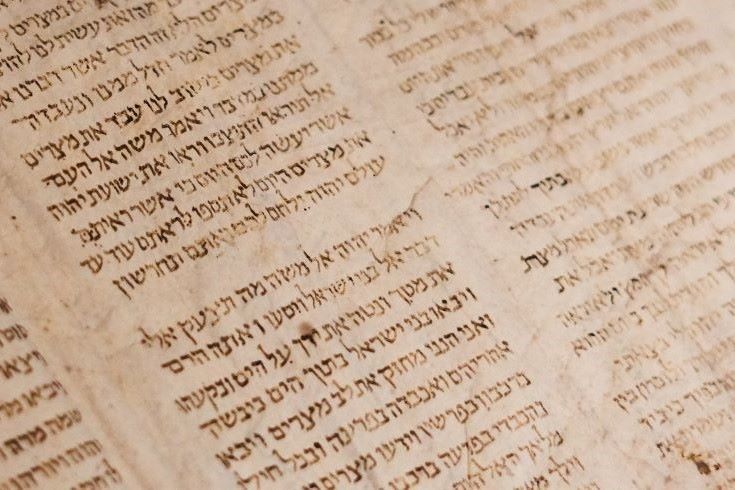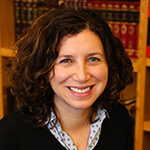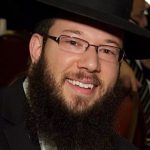Passover: Achieving the Ideal
March 26, 2021
By Wendy Amsellem and Mike Moskowitz
 If Purim is the holiday of making do, then Passover, by contrast, is about achieving the ideal. The Jews are in a sorry state at the start of the Purim story — dispersed among the nations and isolated from one another. While we celebrate the foiling of Haman's evil plan by the end of the megillah, the Jewish people are still scattered in exile and potentially vulnerable to the next tyrant once Esther and Mordechais' influence wanes. On Purim, the people celebrate by sending gifts of food to one another because they cannot actually be together. While Esther has used her sway with the King to great effect, at the end of the book she is still married to a foreign king whom she did not choose, and the rule that every man dominates his wife is still very much the law of the land.
If Purim is the holiday of making do, then Passover, by contrast, is about achieving the ideal. The Jews are in a sorry state at the start of the Purim story — dispersed among the nations and isolated from one another. While we celebrate the foiling of Haman's evil plan by the end of the megillah, the Jewish people are still scattered in exile and potentially vulnerable to the next tyrant once Esther and Mordechais' influence wanes. On Purim, the people celebrate by sending gifts of food to one another because they cannot actually be together. While Esther has used her sway with the King to great effect, at the end of the book she is still married to a foreign king whom she did not choose, and the rule that every man dominates his wife is still very much the law of the land.
On Passover, the Israelites don't just demand better conditions for their servitude. Instead, they emerge as free people, heads held high, bedecked with the finery of their oppressors, as they sing their way to liberation. On Passover, there are no compromises. Moses demands (Exodus 10:9) that not a single Israelite, neither young nor old, neither female nor male, be left behind.
When the rabbis describe the Exodus, they highlight gender equality as a striking feature. Both women and men receive reparations from the Egyptians. Both women and men rejoice at the splitting of the sea. It is specifically in the merit of the righteous women (Talmud Bavli Sotah 11b) that all of Israel is redeemed. This gender parity is further highlighted in the laws of the Seder night. Even though halakhah generally releases women from time-bound obligations, women are commanded to fully participate in the Seder. Women and men are both obligated to eat matzah, to drink four cups of wine, and to retell the story of the Exodus.
Shifting from a posture of coping to one of change requires leaning (pun intended) into different aspects of being human. The name for the first human, Adam- אדם, famously has its roots in "from the earth" אֲדָמָ֔ה (Genesis 2:7) – literally grounded in the reality of the present and limited to whatever is available at the moment. However, Adam- אדם also has its source in the word אֶדַּמֶּ֖ה which means to imagine (Hosea 12:11). We as the descendants of Adam have the power to aspire to and achieve a better world than the one in which we currently exist.
A third meaning of אדמה is related to the word לדמות, to compare. Isaiah 14:14 teaches:
אֶעֱלֶ֖ה עַל־בָּ֣מֳתֵי עָ֑ב אֶדַּמֶּ֖ה לְעֶלְיֽוֹן׃
I will ascend above the heights of the clouds; I will be comparable to the Most High.
The phrase אֶדַּמֶּ֖ה לְעֶלְיֽוֹן reminds us that we, as people, should always be reaching for the ideal and striving to be Godly.
Reordering society begins by questioning the current status quo. We start the seder with the Four Questions because questions themselves bring about change and highlight the unique aspect of being human: to ask (מה and אדם have the same numerical value of 45) and answer. By engaging in this humble process of discerning what is essential and true and what is false and fantastical, our understanding of reality is transformed.
Wisdom, חכמה — chochma, comes from the power of questioning כח מה ( Mesach Chachma ). Throughout the year we strive to be talmidei chachamim, students and practitioners of wisdom. On the night of Passover, when we recite Mah Nishtanah — the asking itself changes and affects change differently.
Visioning requires us to know where we are so that we can plot a path forward. We prepare for the Passover experience by searching for bread with the light of a candle, in all of the cracks and the crevices, to really understand our point of departure. The seder, meaning order, is a lesson in restoring the wholeness and equity of this broken world, as a model for a sustainable year-round version.
The wise child of the Haggadah asks: "What are the testimonies, decrees, and ordinances which Hashem, our God has commanded you?" The child wants to understand the rules, presumably so they can understand how these laws apply to the world today. The parent's answer is not about legal specificity. Instead, the answer is, "Do not eat anything after the Passover sacrifice!" We want the child to understand, and linger over, the taste of freedom. Questions are sometimes best answered by experience.
What is the taste of freedom? If we were to prepare for the needs of the world the way we prepare for the Passover seder, what would the world look like? How can we achieve it? When do we know to settle for improvements and when to start anew in pursuit of perfection? As we reflect on this time in the Jewish calendar, may we appreciate the small steps that have been taken to ameliorate oppression, but may we also be bold enough to imagine and then to achieve complete liberation.
 Rabbi Wendy Amsellem teaches Talmud and Halakha at Yeshivat Maharat and is the Director of the Beit Midrash Program. (Pronouns: She/Hers)
Rabbi Wendy Amsellem teaches Talmud and Halakha at Yeshivat Maharat and is the Director of the Beit Midrash Program. (Pronouns: She/Hers)

Rabbi Mike Moskowitz is a Scholar-in-Residence in Trans and Queer Jewish Studies at Congregation Beit Simchat Torah in New York. (Pronouns: He/Him)
He will be teaching gender and sexuality at Brandeis this summer in the Genesis Pre-college Program.